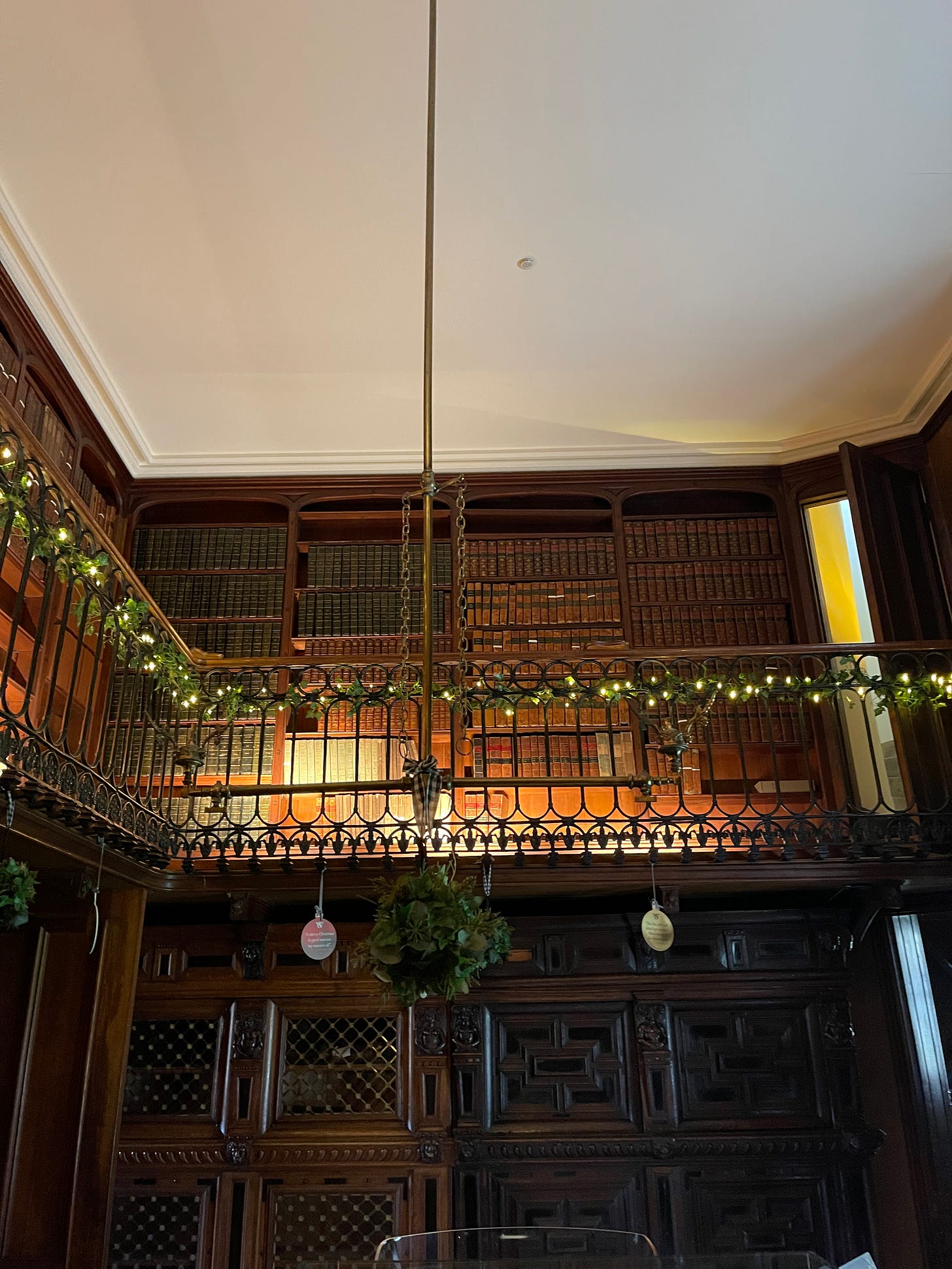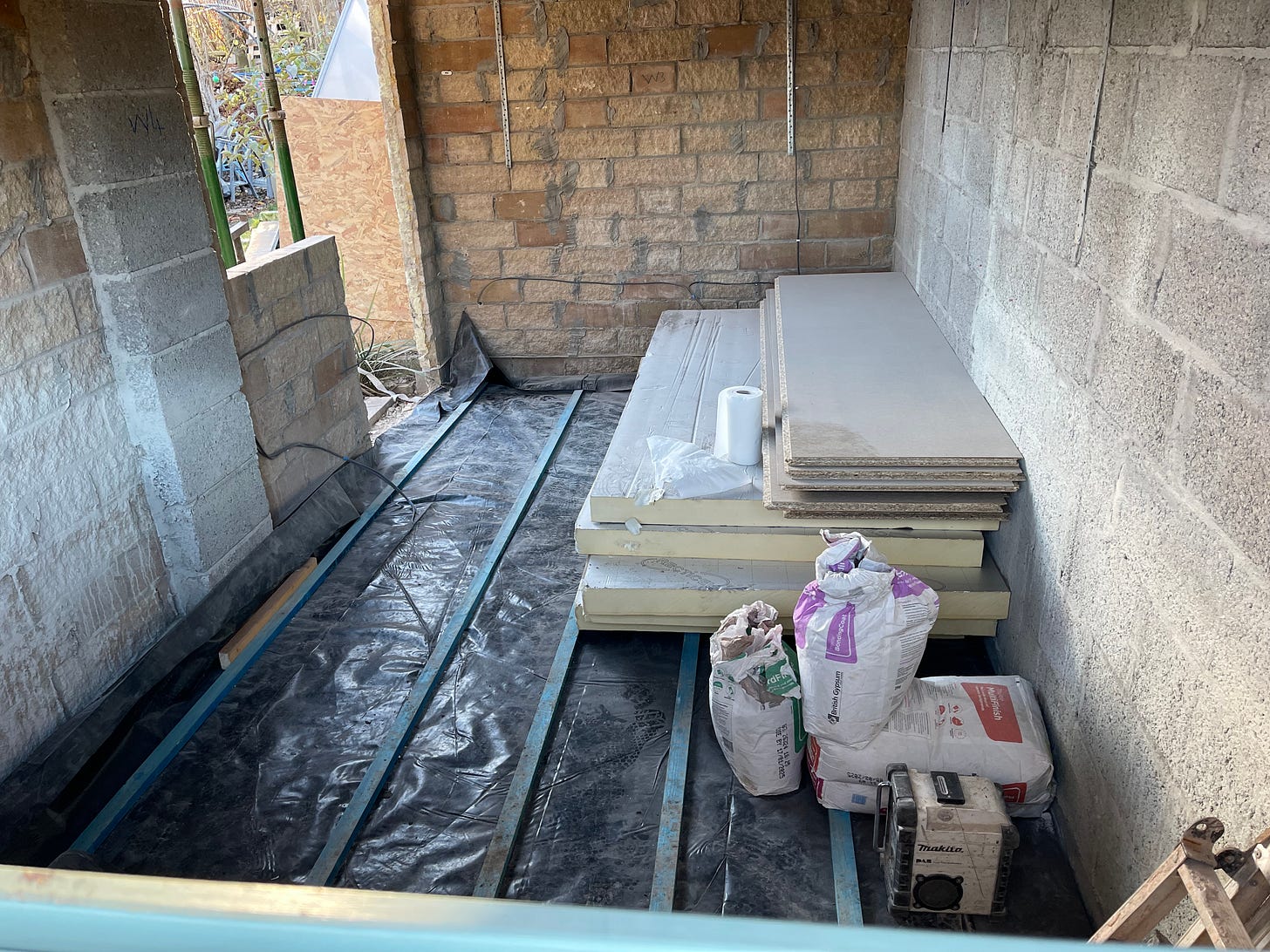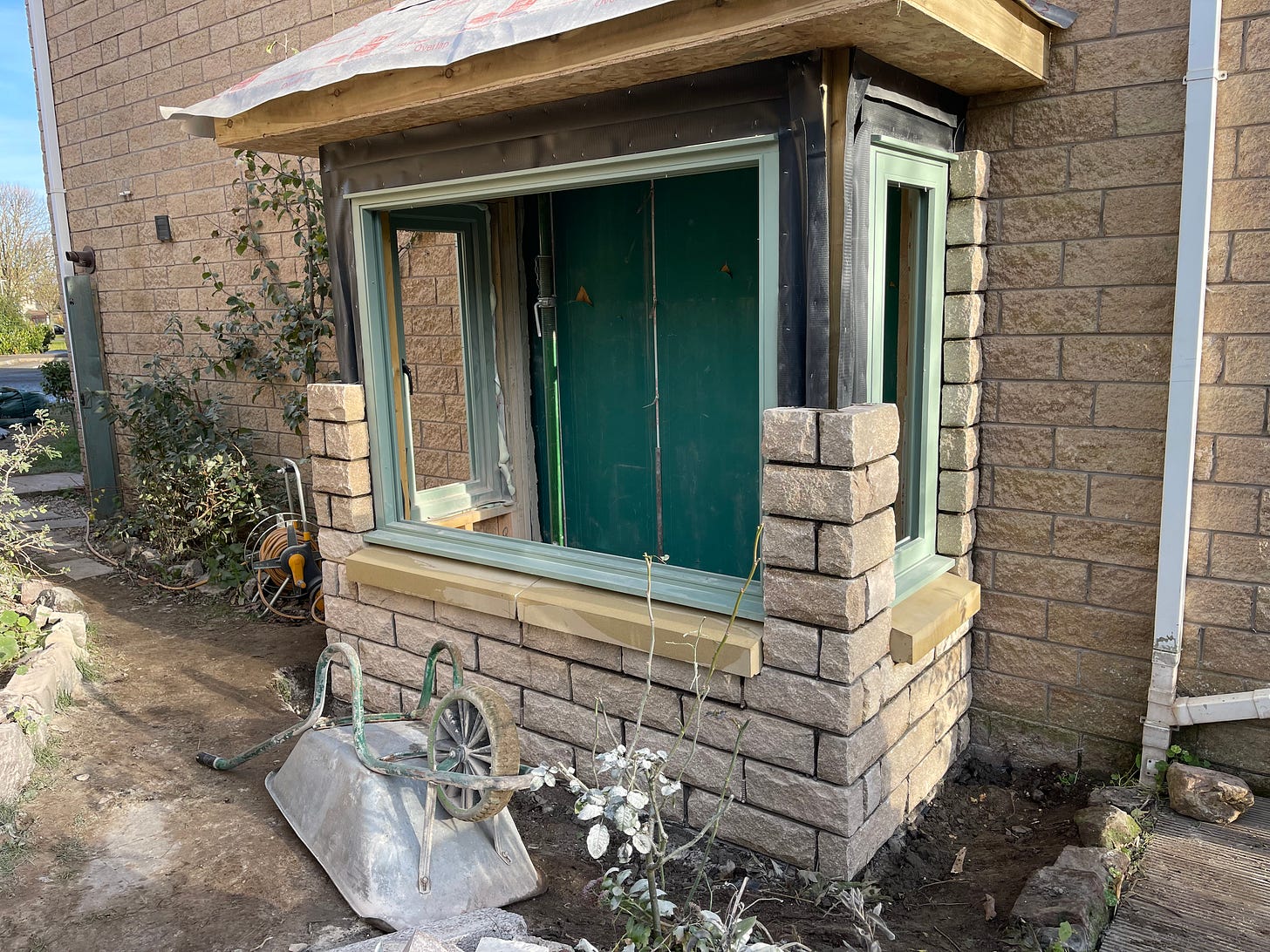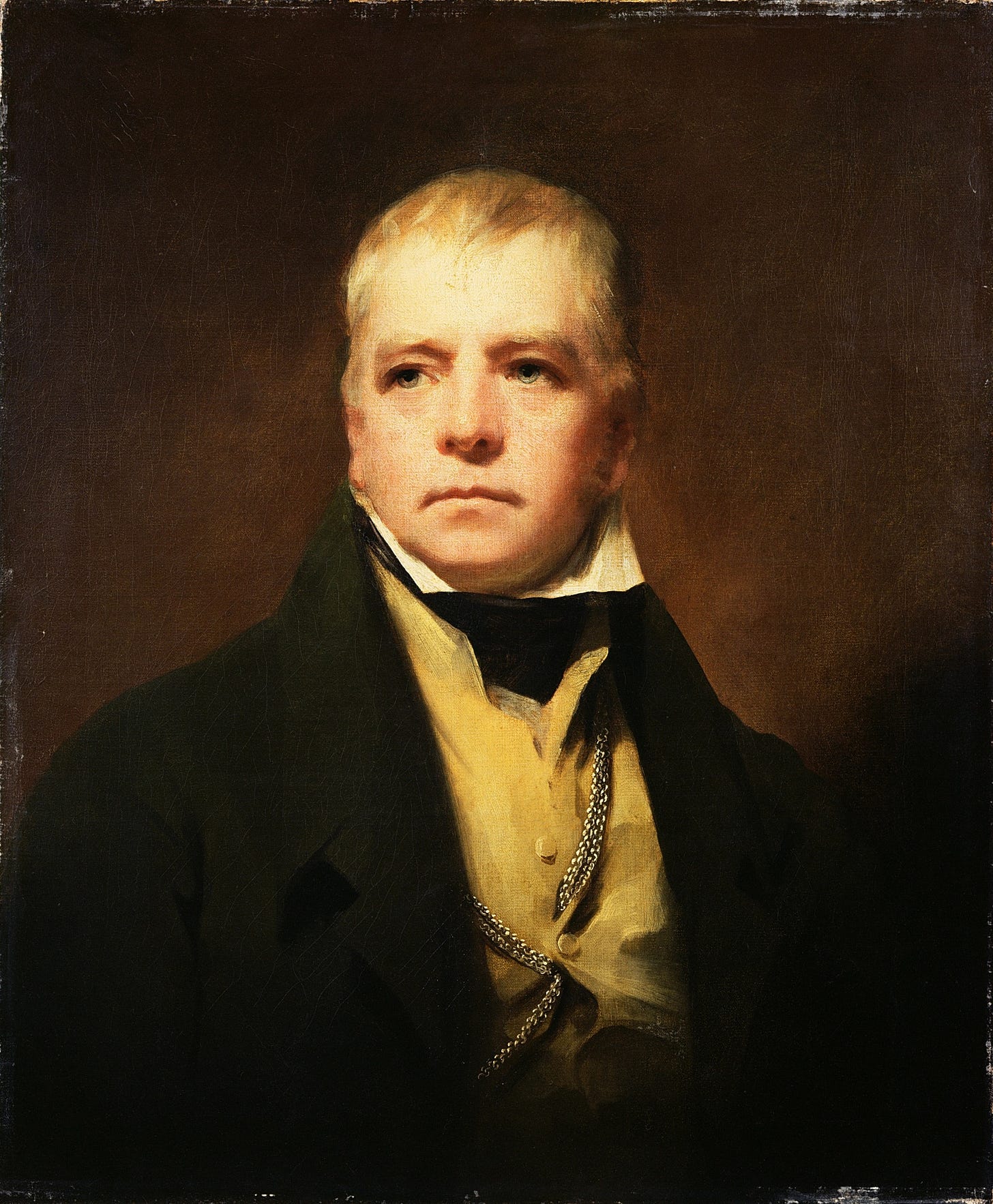As an author, I don’t know if I’m on the verge of a comeback or a slow financial collapse. Every month, I drain more of my savings into a house renovation I can barely afford, all while spending my days writing for little to no money. Financial struggle is familiar to most writers, even the most successful, such as Walter Scott (1771–1832)—the Scottish poet and novelist whose Waverley novels brought him extraordinary wealth and, eventually, financial ruin.
From the age of 43, when he published his first novel, Waverley, until his death at 61, Scott wrote 26 novels—or 1.44 novels per year, which is all the more astonishing when you consider the length of his novels (about 175,000 words per book) and the depth of research and diversity of dialects that went into each one. By comparison, Colleen Hoover, a contemporary serial writer, averages around 195,000 words per year—still less than Scott’s 250,000 annual words. Scott not only had the literary output of Hoover, but the critical acclaim of Hilary Mantel and the wealth of J.K. Rowling.
His success enabled him to build Abbotsford, a sprawling neo-Medieval mansion on the banks of the River Tweed in the Scottish border country.
Scott was having such a good run that his plans for Abbotsford grew more and more ambitious. He took out loans to fund further expansions to Abbotsford and to purchase additional land.
Scott was also secretly running his own publishing house, which amplified his successes while putting him at greater financial risk. When the economy collapsed and his publishing company imploded, Scott went into debt (about $13-$17 million in today’s dollars).
Scott decided to write his way out of debt. The financial strain, some argue, contributed to his premature death, six years later, at the age of 61.
I have Scott on my mind because I recently visited Abbotsford, spent an evening with Edinburgh’s chapter of the Sir Walter Scott Club, and am reading The Heart of Mid-Lothian—arguably Scott’s most lovable (and readable) novel.
Like Scott, I find myself in the midst of a renovation project, though mine is far less grand: a bay window for the living room and a renovated garage. But the cost of the renovation feels proportionally stressful.
And so I find myself, like Scott, in a financially precarious state that is both a source of stress and inspiration—to publish.
For the past six months, I’ve found myself playing a game of Russian roulette with my career: spending a good deal of my time making almost no money while rebuilding my platform (with this Substack and podcast) while quietly writing two books on the side. My goal is to get back in the publishing game and bring in enough money to pay the bills before I go belly up. (Or until my psychotherapy side-career kicks in—more on that another time…)
But publishing is more than mere finances to me. It is my life’s driving force. Posting Substack essays or self-publishing will never be enough. I only wish to publish in the traditional sense, by creating a book that has a physical presence that has gone through the processes of an established press.
This “traditional publishing” view may well be outdated. Many authors successfully and happily self-publish. But, for me, there’s something about traditional publishing that I may never shake: the joys of slipping past the gatekeepers, creating a lasting work of art, establishing my own little literary legacy, and, ideally, reaching more readers than I could on my own. The validation and sense of permanence that I crave can only come from a traditional publisher, according to my (perhaps wrongheaded) point of view.
I imagine, looking up from my deathbed, at a shelf holding 8-10 titles with my own name on them—the output not just of a hobbyist but an artist who spent years obsessing over each sentence out of respect for the craft and the reader. Up there will be the reminders of homespun metaphors, the private guffaws, the thoughts I so slowly chiseled that they no longer feel like my own, but like a funnier or brighter super-version of myself. They will be like sisters to my own daughter: reminders of a life well lived.
And so, I want back what I once had: a functioning literary career.
Scott pumped out about fourteen books in his last seven years. Quality may have been compromised, but they did well enough commercially. He mostly paid off his debts and Abbotsford never had to be sold at auction.
Me… I hope to turn my old self-published ebook, A Walk across Suburbia, into a physical book, which, with the magic of technology, is not a hard thing to do. I also have a mostly complete manuscript for my memoir Out of the Wild to pitch, and another political book, The Progressive Man (or The Liberal Warrior, I can’t decide) in the works. None of them have publishers or even representation. Meanwhile renovation costs, mortgage payments, and bills steadily erode the last of my savings.
Scott’s premature death is a reminder of how financial strain can take a toll on the body. For me, financial stress is like a low-frequency sound wave—inaudible, yet ever-present. It lurks in the background, even when out of mind.
Will I survive my present financial pressures, or will I be forced to abandon writing for something more stable but less fulfilling? That’s the stress that eats me alive—but also drives me to keep going — for now — just as it must have driven Scott.
* * Subscribers get paid content below**
Keep reading with a 7-day free trial
Subscribe to Out of the Wild with Ken Ilgunas to keep reading this post and get 7 days of free access to the full post archives.










